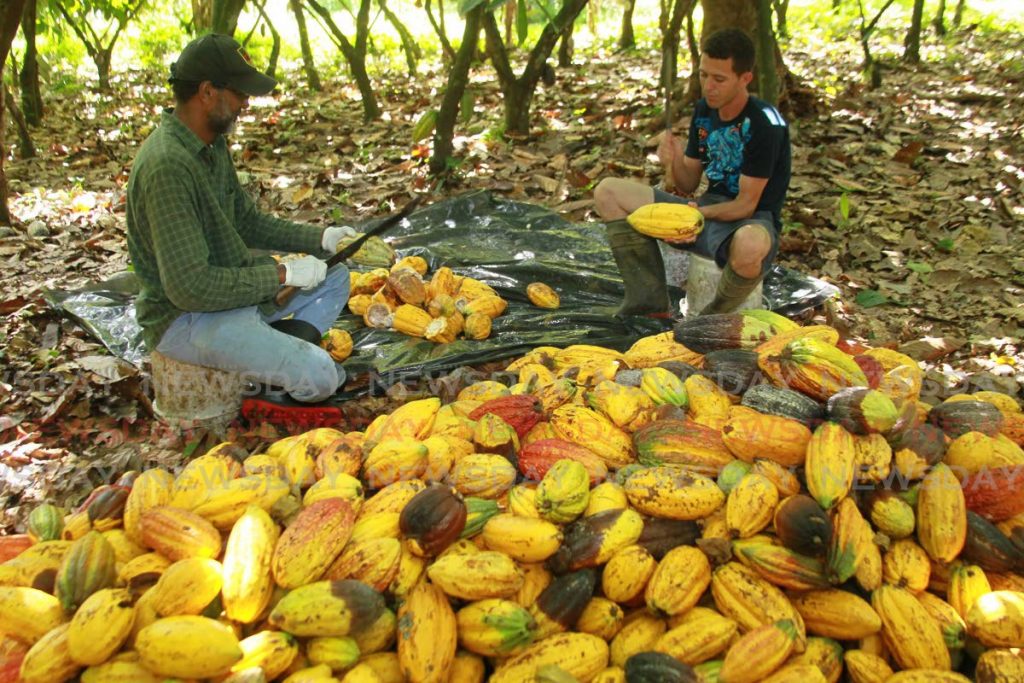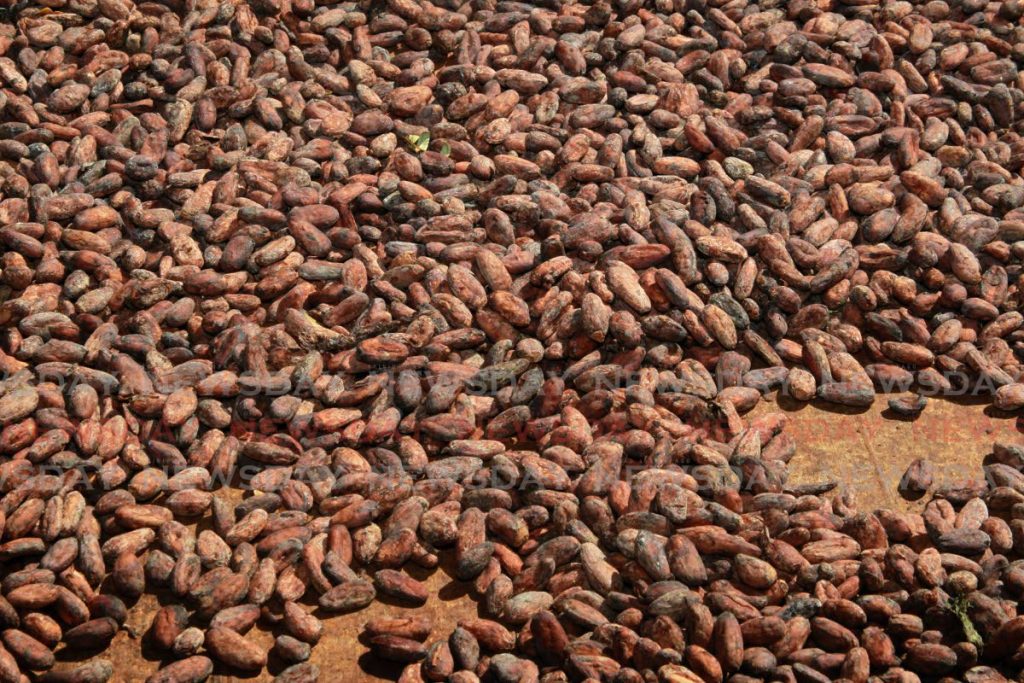European Union to invest in Trinidad and Tobago's cocoa industry

Newly appointed European Union (EU) ambassador to Trinidad and Tobago Peter Cavendish believes with proper investment and best practices, this country’s cocoa industry can be revived and become a force to be reckoned with globally.
Speaking with Business Day last week, Cavendish said cocoa can be a major source of income for TT, and the European Union was seeking to encourage all stakeholders to get on board with a project they planned to initiate soon.
Cocoa from TT was known throughout the world, he said, for its richness and delicious flavour, but needed work to become more exportable to Europe.
Cavendish explained that while Europeans consumed about 50 per cent of the world's chocolate, TT cocoa products were a concern because they contained cadmium.
UWI says TT cocoa is a bioaccumulator of cadmium, which means it stores the heavy metal in the stems, leaves, fruit and seed, through their natural processes. Cadmium (Cd) is a heavy metal used in batteries, industrial components, and paint, and is also found in volcanic soil.
UWI said, “The European Food Safety Authority has released standards for maximum permissible amounts of cadmium in cocoa and chocolate. In TT, high cadmium contamination is localised in certain areas to the northeast, where the soil is volcanic in nature.”
Cavendish said the EU had plans to undertake several studies and work with UWI, cocoa producers, the Ministry of Agriculture, Land and Fisheries, entrepreneurs, non-governmental organisations and other stakeholders to find solutions to the cadmium contamination.
In a collaboration with other donors, almost €350,000 has been invested in the project to boost the sector and promote economic diversification for TT and several Latin American countries. It has invested €50,000 or $400,745 in the TT leg of the project.
“As an example of what we are doing is to work with the International Cocoa Organisation and Ecuador, Peru, Colombia and TT to treat the effect of cadmium in cocoa.
“Historically TT was producing 40,000 tonnes of cocoa per year and now it is about 3,000 tonnes. TT has some of the best cocoa plants in the world. Trinitario is the world's number one, and it is used in many other countries.”
Cavendish said, “We are working with a local family, but they are London-based, and they have some iconic products and marketing. We are also working with UWI because of their expertise and research in cocoa. The institution was among the best in the world.

“The average European is already consuming the average amount of cadmium each week and it is bad for your kidneys and liver and this is why we are sensitised to it.”
He did not name the company but said they were working together to produce other products such as chocolate liqueurs and establish a cadmium testing facility.
He said the market for cocoa was vast, estimating US$100 billion a year, and it was unfortunate that TT has not been able to share that wealth.
Additionally, Cavendish said the project was trying to get women more involved in cocoa production while exploring other avenues of diversification and promoting economic independence.
“We are looking to get women more involved through NGOs, agriculture co-operatives and local community groups. There are many areas in the world where women through similar projects have become economically empowered.
“It is something that we are explicitly tackling in this project – gender empowerment.”
Cavendish made an open call for anyone with a passion and desire to rebuild the cocoa industry to contact the EU’s office in Port of Spain.
“TT has the talent, the environment and the raw materials, and the EU is looking at investing in the industry. We would be so proud to be a part of the production of top-quality chocolates on shelves in Europe and across the globe.”
In 2015, a €2 million grant from the EU under the ACP Science and Technology Programme II led to the establishment of the International Fine Cocoa Innovation Centre (IFCIC) project, which was geared toward transforming the sector across the region, as well as promote sustainability of Caribbean cocoa and regional food crop security.
At a recent webinar hosted by UWI's Cocoa Research Institute (CRC), Agriculture Minister Clarence Rambharat said the covid19 pandemic has rocked the global cocoa industry and relationships within it.
“We have to confront what is happening in terms of the growing and the concentration of growing and...production in Africa, and the reality that Europe dominates cocoa and chocolate, without having the conditions under which cocoa can be grown."
“We have to decide how we are going to deploy our limited resources, how we are going to leverage what we have and how we are going to create partnerships.”
Rambharat added that TT needed to be aware of its trading partners and barriers within and outside the World Trade Organization's framework, which can make some markets difficult to access.
Notwithstanding the challenges in the local cocoa industry, three producers were able to make it to the next round of the international cocoa excellence programme. There cocoa samples were ranked in the 50 Best of the World out of 235 global samples and were regarded as having exceptional flavour.
The participants — Annette Mills, Winthrop Harewood and the farmers of the Four Roads Tamana Cluster – will compete in the international cocoa awards at the Salon du Chocolat, Paris, in October.

Comments
"European Union to invest in Trinidad and Tobago’s cocoa industry"